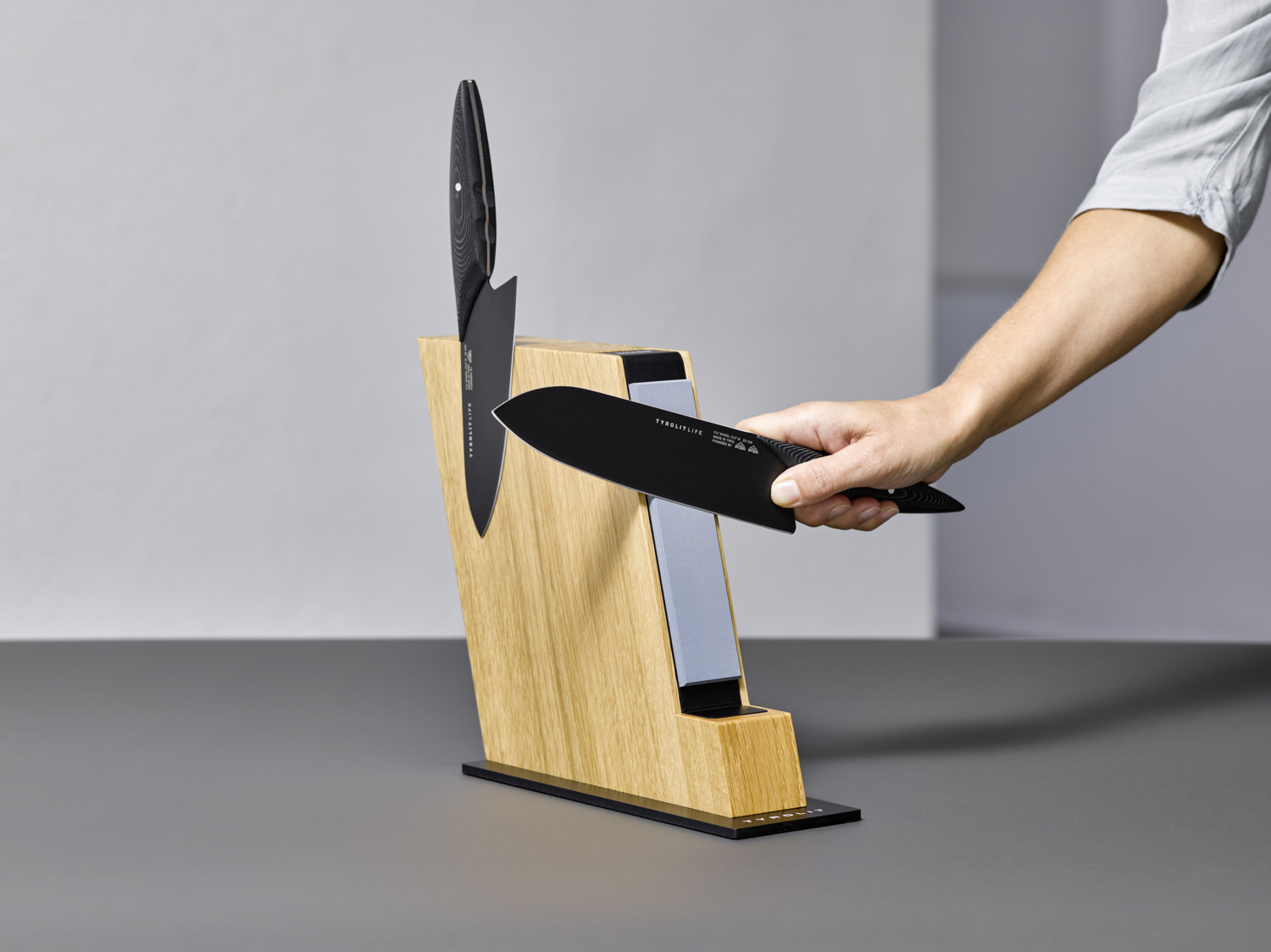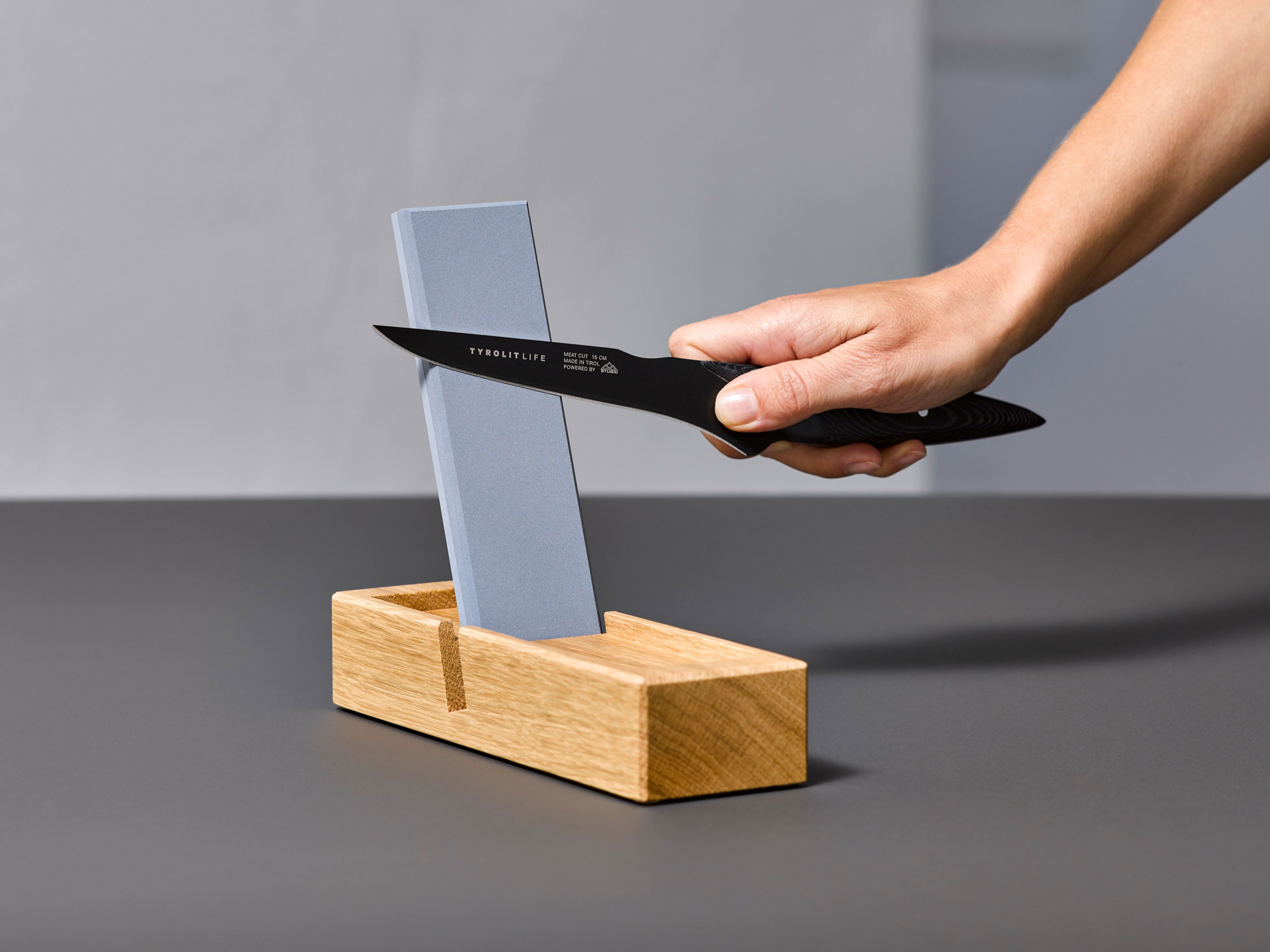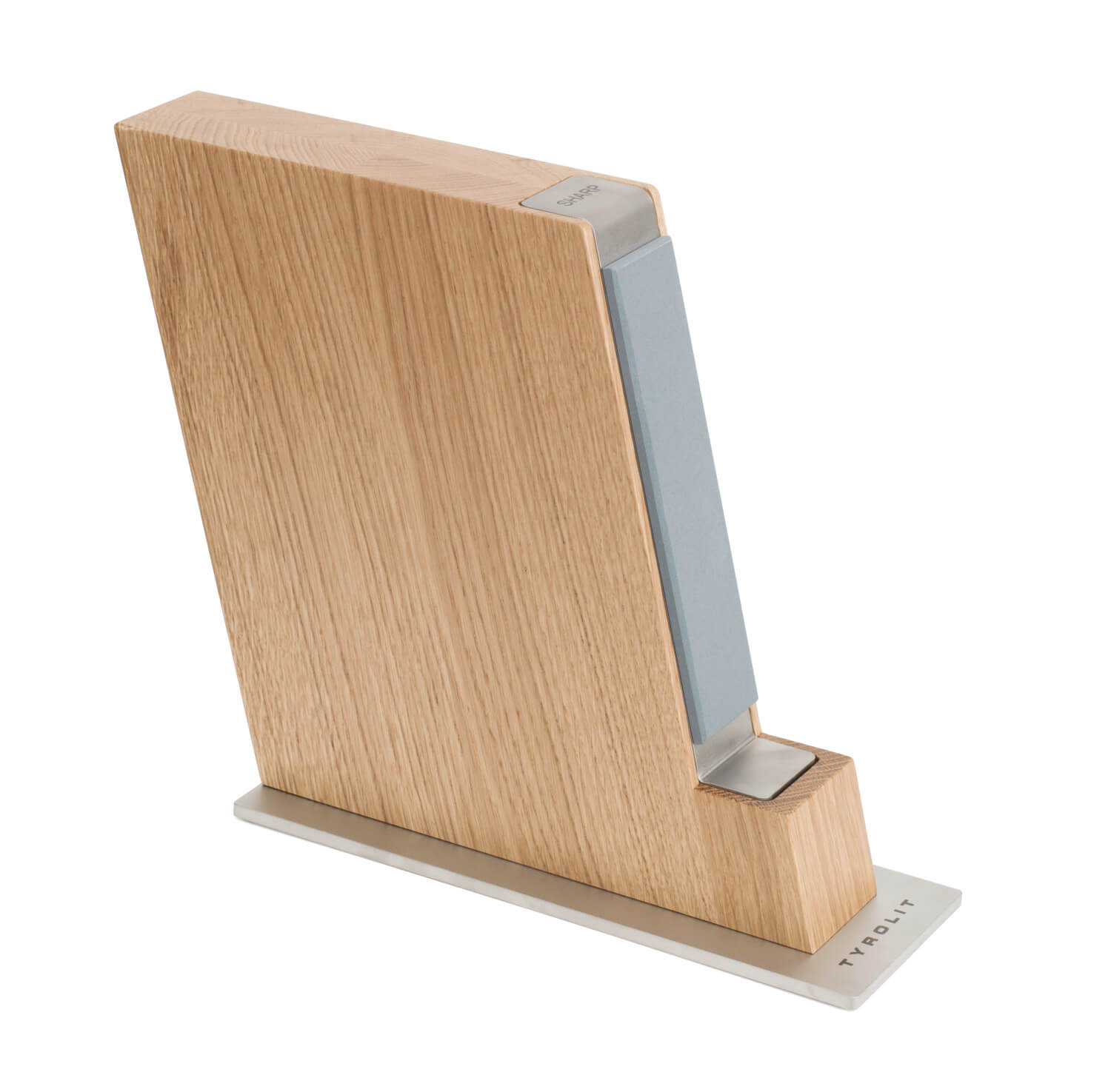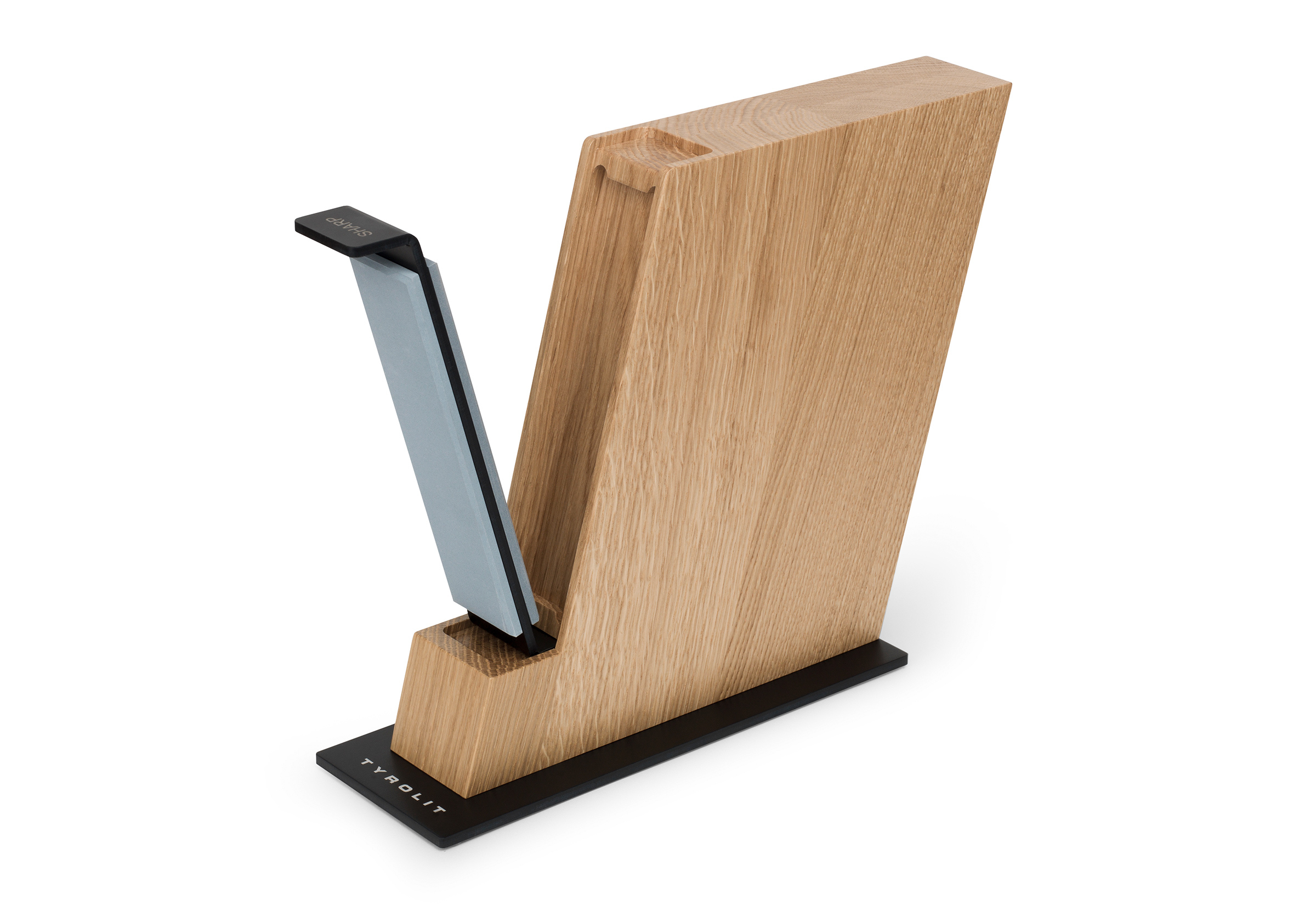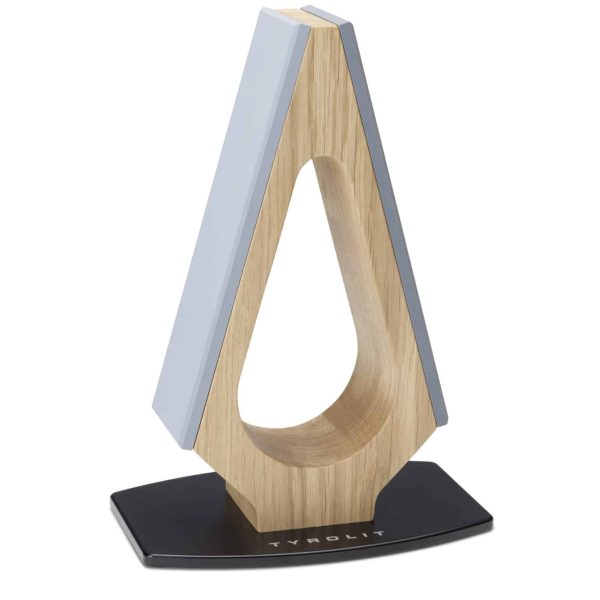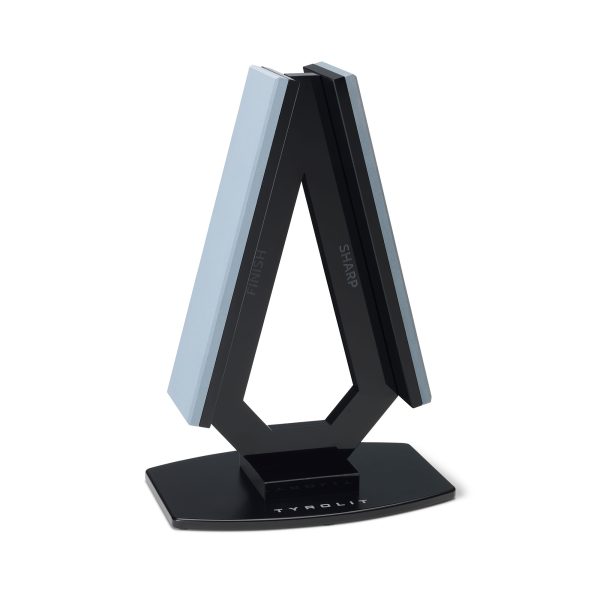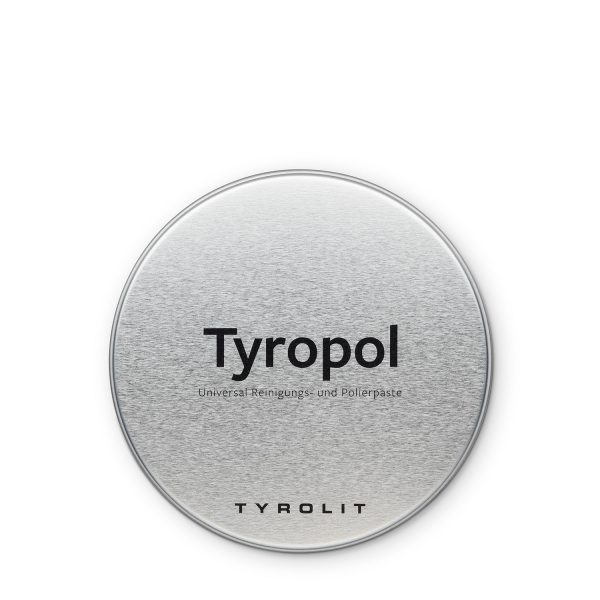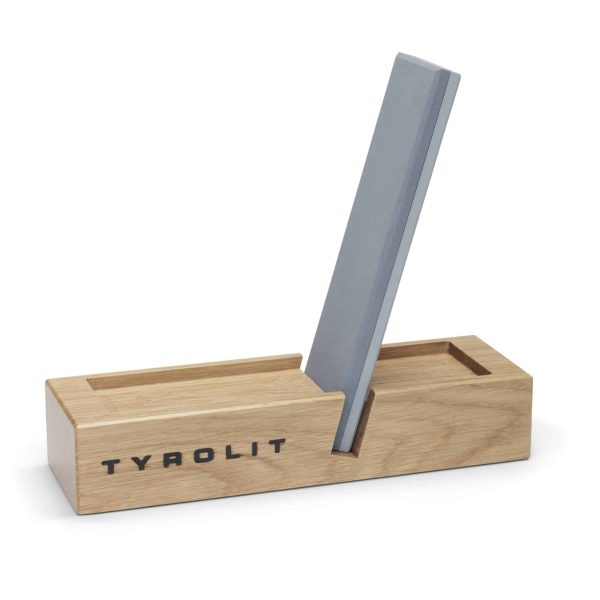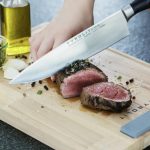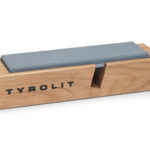Maintaining and Cleaning Knives – 12 Tips from a Tyrolean Knife Expert!
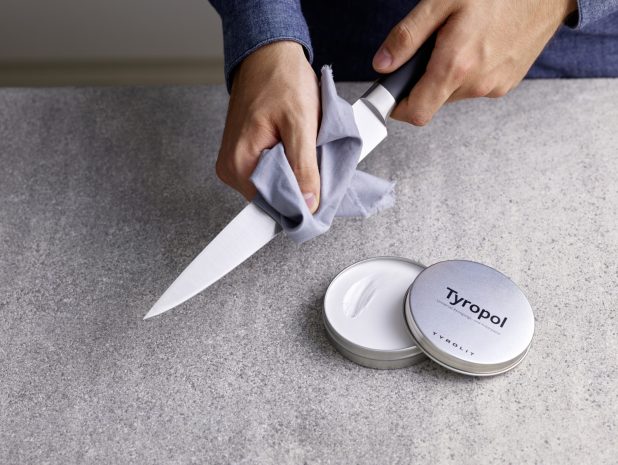
The care and cleaning of knives is not only a matter of hygiene, but also of durability and functionality. A well-maintained kitchen knife retains its sharpness, is safer to use and can last for many years or even decades if handled correctly.
In this article, we have summarized tips and tricks on how to optimally care for and clean your knives. We draw on our extensive knowledge as Tyrolean experts in blades and abrasives to give you the most important information about cleaning and care of knives in a nutshell.
Tip 1: Knives do not handle falls well
Knives are sensitive instruments that need to be handled with care. A fall, first and foremost, poses a risk of injury but can also damage the knife blade and handle. Even minor nicks or cracks can significantly impair the cutting performance.
Therefore, always ensure your knives are placed securely. Do not leave knives carelessly on the countertop, where they might fall. Store them in a manner that prevents them from slipping off the edge or being knocked over by other kitchen utensils. Safe storage not only prevents dangerous falls but also ensures that you can enjoy your high-quality kitchen knives for a longer time.
Tip 2: The right knife for the right job
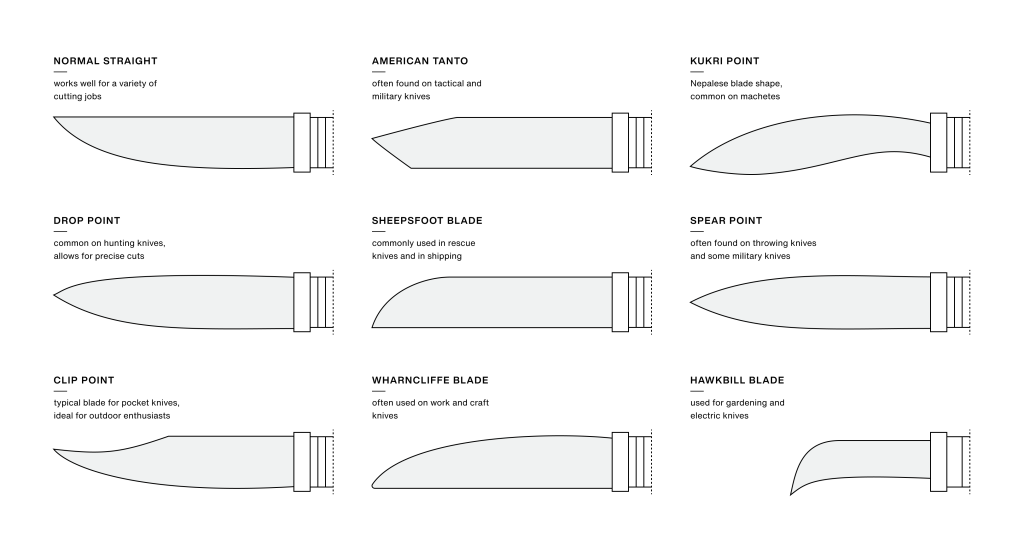
For various cutting tasks in the kitchen, you need different types of knives to achieve the best results. A chef’s knife serves as the versatile tool in the kitchen, perfectly suited for cutting, chopping, and mincing vegetables, meat, and herbs. Its wide blade and subtle curve facilitate precise cuts and skillful use of the rocking technique.
A bread knife, on the other hand, has a long, serrated blade, ideal for cutting bread and other baked goods. The wavy cut ensures that the crust is cut cleanly without crushing the soft interior.
The variety of kitchen knives makes it possible to choose the right tool for every cutting task. If you all too often use a cheese knife to quickly cut a slice of bread, this can be at the expense of the knife in the long run. That’s why Tyrolit Life offers a wide range of specialised knives with different blade shapes to suit any task.
Tip 3: Cut gently on the right cutting surface
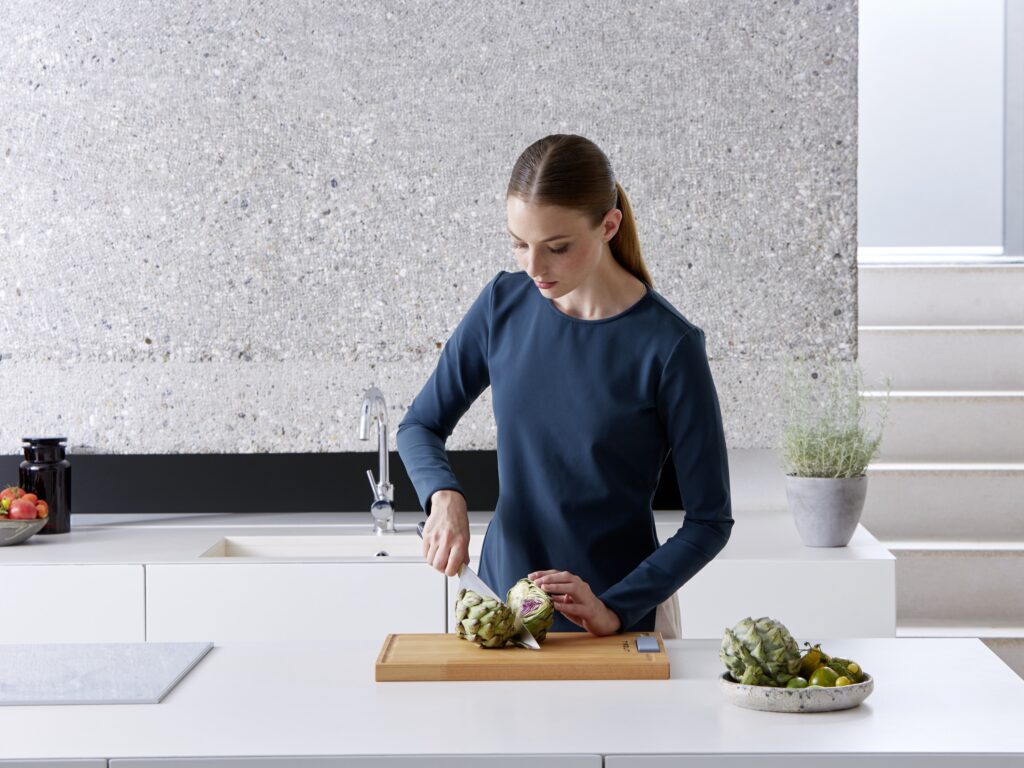
A high-quality cutting board is literally the foundation for protecting your kitchen knives and keeping them sharp. Cutting boards made from soft materials like wood or plastic are especially suitable, as they wear down the blade less than hard surfaces like glass or stone.
A good cutting board should be non-slip to be able to work safely and provide enough space for you to easily cut without slipping. In particular, high-quality kitchen knives benefit from a gentle cutting surface that prevents the blades from becoming dull or damaged.
Cutting boards from Tyrolit Life combine durability with optimal protection for your knives and thus contribute to the fact that you will enjoy your good knives for a long time. Made of beech wood, they are also equipped with an integrated whetstone, so that you can quickly bring the blade back to shape before, during and after intensive cutting work.
Tip 4: Clean dirty knives immediately
To avoid dried residues and other damage to your good knives, you should clean them immediately after each use. Use lukewarm water and a mild detergent to quickly remove food residues, salt and acids that could attack the blade.
If knives remain uncleaned for long periods of time, it can lead to corrosion and discoloration, which will significantly shorten the life of your knives. After cleaning, you should dry the knives thoroughly with a soft cloth to avoid water and rust stains (unless the blade is rustproof).
A quick and careful cleaning is an essential part of the proper care of your knives and ensures that they retain their sharpness and functionality for longer. Avoid aggressive cleaning agents and abrasive sponges as they can damage the blade. Good knives deserve careful care to ensure their quality and longevity.
Tip 5: Clean knives in the dishwasher? Better not
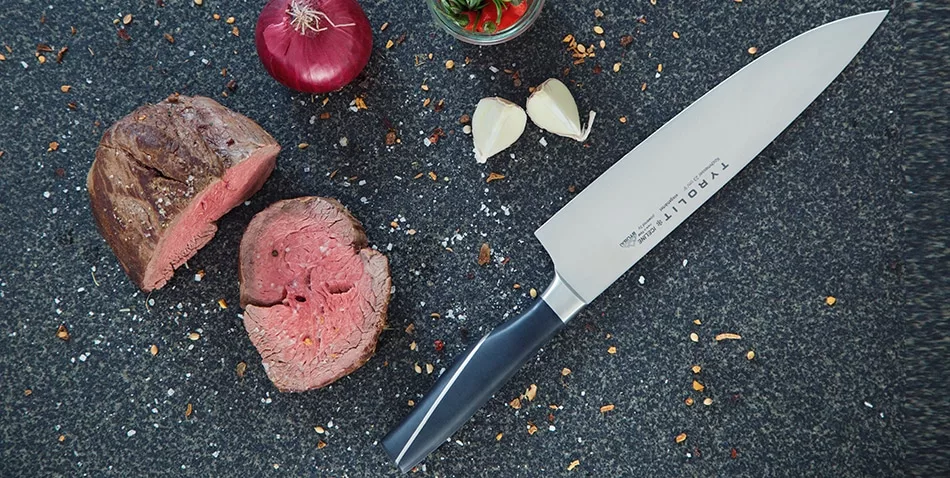
Cleaning knives in the dishwasher is not recommended, even if they are made of stainless steel. The aggressive detergents and high temperatures in the dishwasher can damage the blade and handle of your knives. Additionally, sharp knives can become dulled or nicked from contact with other items in the dishwasher.
The knives from Tyrolit Life are also dishwasher-safe in principle, but will thank you for washing them by hand. To extend the life of your knives and maintain their sharpness, we therefore recommend washing them by hand.
Tip 6: Use a mild dish soap and dry the knife well
For the long-term preservation of the sharpness and functionality of your knives, the right cleaning is the be-all and end-all. Use a mild dish soap and lukewarm water to thoroughly remove food residues and acids that could attack the blade.
Immediately after cleaning, it is important to carefully dry the knives with a soft microfiber cloth. Even stainless steel can be affected by improper care. Moisture on the blade often leads to unsightly stains and can damage the cutting edge.
Avoid harsh cleaners and abrasive scrubbers, as they can scratch the blade’s surface. Proper care – using lukewarm water and a gentle detergent, followed by immediate drying after cleaning – preserves the blade’s sharpness and prevents corrosion. Thus, your knife remains sharp and ready for use longer.
Tip 7: Stow the knife properly – in the knife block!
To properly store your knives and extend their lifespan, it is advisable to keep them in a knife block. A knife block safeguards the blades from damage and ensures they are readily accessible for the next use. It prevents the blades from coming into contact with other knives, which can prevent scratches and nicks.
The cutting board should also be positioned near the knife block to ensure an efficient and safe workflow. This can be further enhanced by selecting a magnetic knife block, making the removal and storage of knives even simpler, and facilitating the selection process when all your knives are in clear view.
A knife block with an integrated whetstone, such as that offered by Tyrolit Life, is particularly practical. This ensures safe storage and also makes it possible to sharpen the knives regularly and always keep them ready for use.
Magnetic Knife Block – Compelling Arguments and Benefits
A magnetic knife block brings not only aesthetic, but also practical and even hygienic advantages. Why? We’ll take a look at that in this post.
Tip 8: The knife handle also needs to be cleaned and maintained
In addition to the blade, the knife handle also needs regular care, especially if it is made of wood. Wooden handles are often prone to moisture and dirt, which is why they should be carefully cleaned and cared for. Use a damp cloth to clean the handle and avoid dipping the handle in water for too long as this can cause the wood to swell.
For proper care of the wooden handle, some manufacturers recommend the use of care oil or cooking oil such as linseed oil. To do this, the oil is regularly applied to the dry handle and then allowed to absorb well before the knife is used again. This protects the wood from drying out and preserves the natural beauty of the material.
Knife handles made of other materials, such as plastic or metal, should also be cleaned regularly to remove dirt and bacteria. By taking proper care of the knife handles, you ensure that your knives not only look good, but also remain safe and hygienic. So you can enjoy your high-quality kitchen knives for a long time and their handles remain in perfect condition.
Tip 9: Knife care: Even the best knives have to be sharpened
Even the highest quality knives lose their sharpness over time and must be re-sharpened regularly. A sharp knife makes it easier to work in the kitchen and also ensures safer cutting. To sharpen your knives, you can use various tools, such as a whetstone, a honing steel, or a knife sharpener.
The whetstone is ideal for precise grinding and offers different grits for coarse and fine sharpening. Pay attention to the correct sharpening angle, which is about 15 degrees for most European knives.
Tyrolit Life has developed knife sharpeners with a preset sharpening angle of 15 degrees because the whetstone brings with it the challenge of finding and maintaining the right sharpening angle, especially for amateurs. And the knife blocks and cutting boards of the Tyrolean abrasive expert are also equipped with whetstones that make it easier to grind at the right angle.
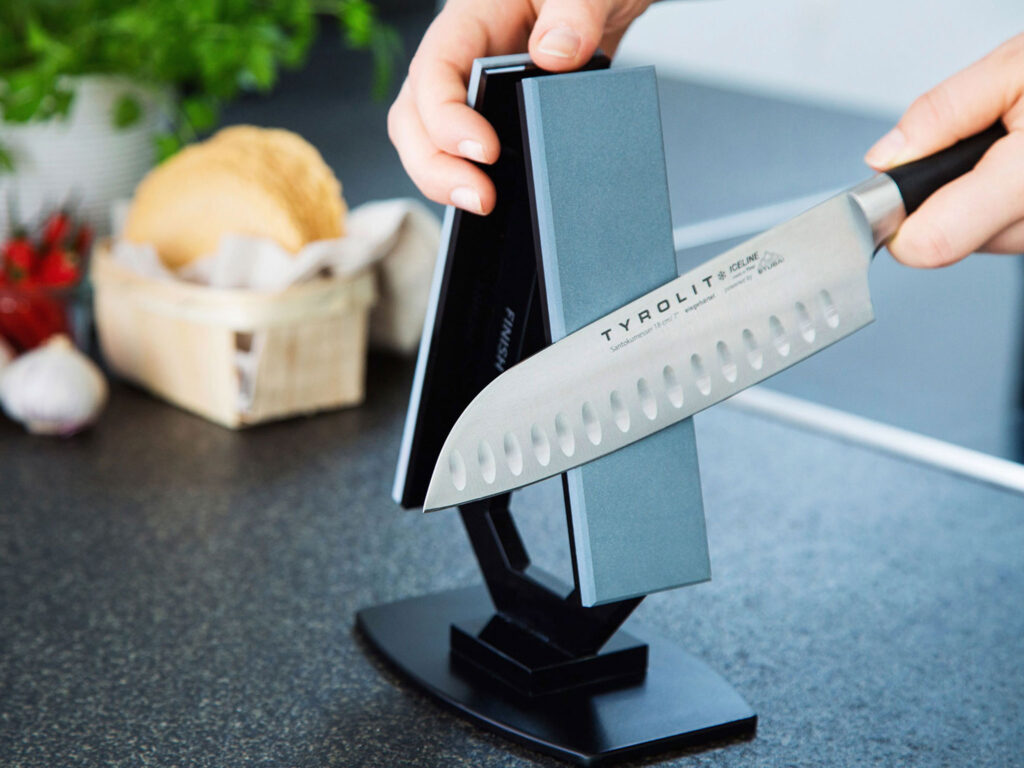
Tip 10: Rough sharpening isn’t always necessary for knife maintenance
When sharpening knives, many people first think of rough sharpening to get blunt blades sharp again. But often a fine sharpening is enough to maintain and improve the sharpness of a knife. The fine sharpening smoothes the blade and removes only minimal amounts of material, which extends the life of the knife.
A high-quality whetstone with different grits is ideal for performing both coarse and fine grinding. Because if it is time for the coarse grinding again, then start with the coarse grit to remove small damage and restore the basic sharpness. Then use the fine grit to polish and refine the blade.
To allow for both coarse and fine sharpening of kitchen knives, Tyrolit Life provides whetstones with two distinct grit levels. With a 400 grit for coarse sharpening and an 800 grit for fine sharpening, it’s possible to restore the sharpness to even dull knives with just one stone.
Sharpening and Grinding Knives – An Overview of the Best Methods
Knife sharpeners come into play when the blade of a knife gradually loses its sharpness. This occurs even with the highest quality knives, which need to be regularly honed and sharpened. Here, you will learn essential tips for maintaining sharp knives!
Tip 11: Make your knives shine like new with polishing paste
In addition to sharpening, polishing the knives is also a worthwhile step in the care of your kitchen knives. Polishing paste such as Tyropol from Tyrolit Life is an excellent means to let your knives shine in new splendor. This special paste removes stubborn dirt and stains that can accumulate on the blade over time.
The application is simple: apply a small amount of the polishing paste to a soft cloth and rub the blade with it. Be sure to polish the entire area evenly. Then rinse the knife thoroughly with water and dry it carefully. The result is a knife with a shiny, well-maintained surface.
Regular polishing with a high-quality polishing paste such as Tyropol not only contributes to the visual enhancement of your knives, but also protects the blade from corrosion and maintains its sharpness.
Tip 12: Use intersections – with combined everyday helpers from Tyrolit Life
The care and handling of your knives can be greatly facilitated by the use of combined everyday helpers. Tyrolit Life, for example, offers high-quality solutions that not only sharpen knives, but also optimize their storage and care. A good example of this are the cutting boards and knife blocks, each of which is equipped with an integrated whetstone.
The first version is already clear and accurately translates the original text. However, for a slight refinement to enhance readability: A Tyrolit Life cutting board combines the benefits of a sturdy cutting surface with the option to sharpen your knives at any moment. The incorporated whetstone, preset at a 15-degree angle, guarantees effortless and precise sharpening of your knives. The outcome: consistently sharp knives and a cutting surface that safeguards your blades.
Tyrolit Life's magnetic knife block also offers this dual functionality. It keeps your knives safe and handy, while the integrated whetstone ensures the right sharpening. This keeps your knives in top condition and you can rely on ready-to-use knives at all times.
In such innovative helpers, the advantages and functions of several tools flow into each other. With them, Tyrolit Life offers a perfect combination of storage, care and sharpening, which makes everyday life in the kitchen much easier and makes your knives more durable.
FAQs
How to properly care for a knife?
How do you clean high-quality knives?
How do you sharpen blunt knives?

